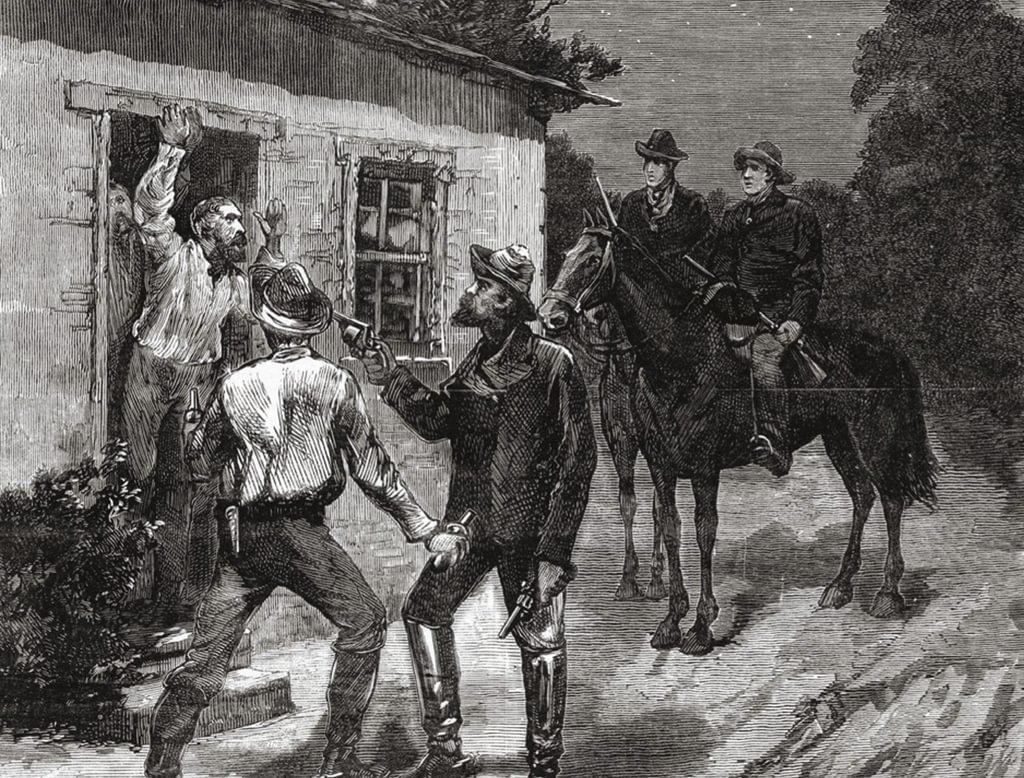
Around 240 kilometres northeast of the city of Melbourne, Victoria, is the township of Greta. It’s treelined, pastoral and, without closely inspecting a photo of the country surrounding Eleven Mile Creek, you could convince someone that it was the ancestral Irish homelands of some of its 250-odd population. Beyond the road leading through Greta there’s a faded “Keep Out!” sign above a sturdy barbedwire fence and, beyond that, nothing to speak of save more rolling pasture on a wooded backdrop, what looks like the rusted hubs of an ancient cart wheel and a solitary red brick chimney.
This is Kelly country. Despite looking like a fresh breeze would topple it into the dirt, this vestige of a homestead is actually a palace, its original owner — Edward ‘Ned’ Kelly — a prince of thieves Down Under, and the mythology surrounding his exploits every bit a jewel in Australia’s cultural crown. Keen to preserve this monument, Ned’s descendants have erected fences to keep tourists with busy hands from finishing the job the elements and gravity started nearly 150 years ago. And who can blame them when there are few such tangible truths to their ancestor’s story left today? Where England takes its romanticised, 1,000-year-old Robin Hood story with a pinch of salt and no small amount of Kevin Costner, for many Australians Ned Kelly was a bone fide revolutionary who exploded from his humble Selector community in 1878 to defy the corruption of the colonial authorities. For others, he was a dyed-in-the-wool thief, a thug, a killer, an egotist manipulative enough to have spun his own legend to ensure its survival for many generations.

The early part of Ned’s history is less divisive. His father, John ‘Red’ Kelly, was an Irishman who, in 1841 and at the age of 22, was convicted of stealing two pigs and transported to Tasmania. He made the crossing to Victoria in 1848 and ultimately settled with his new wife, Ellen, in the small town of Avenel. Red was a cattle rustler of note who had brushes with the law until his undoing in 1866. Unable to account for a suspicious pile of meat
